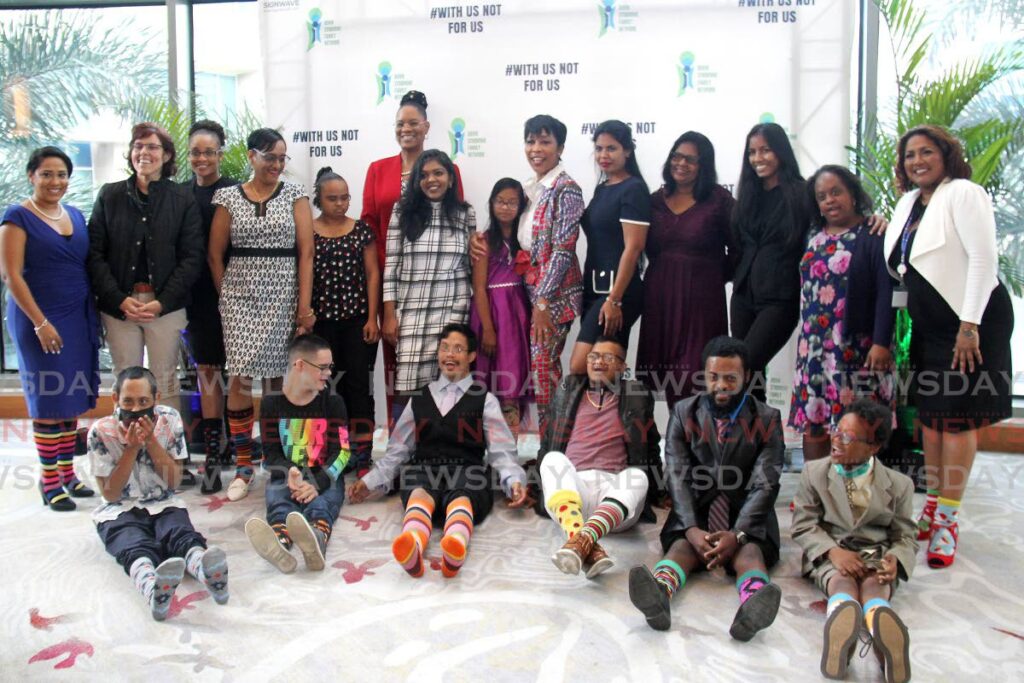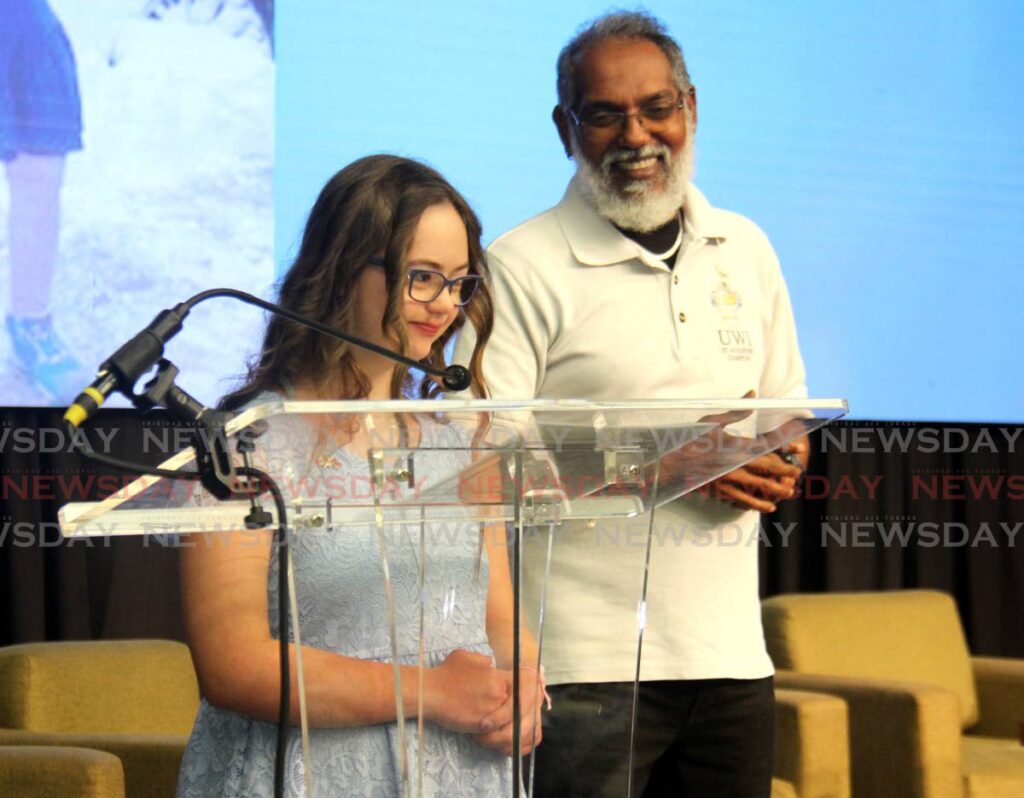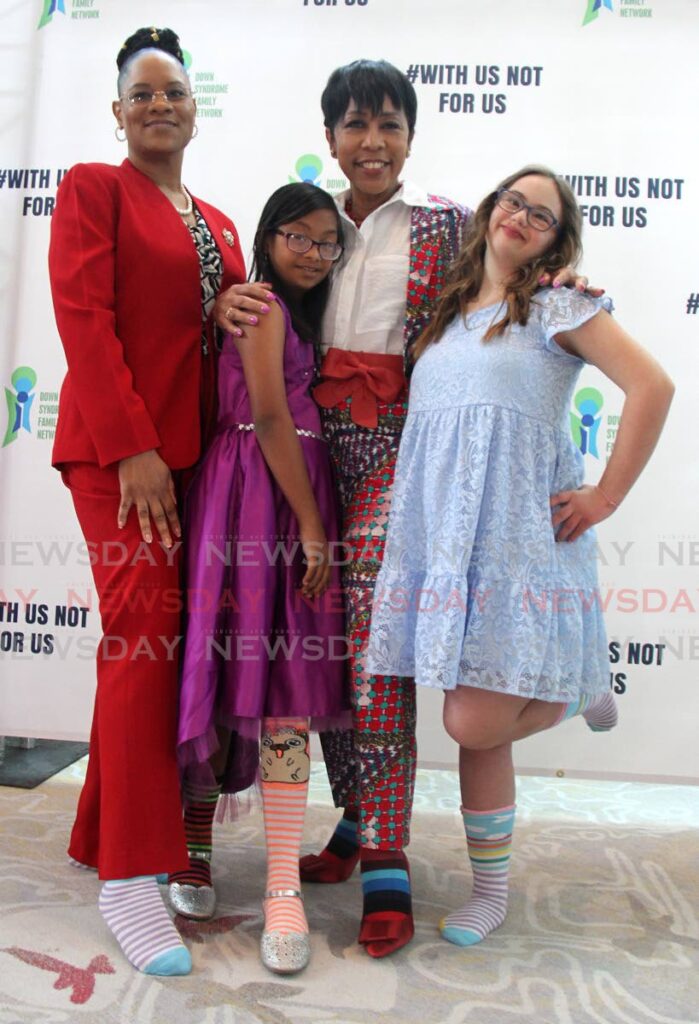Call for legal capacity for people with disabilities

ADVOCATES for people with disabilities are calling for legislative support allowing people with disabilities to have legal capacity, which will recognise them as individuals capable of living independently.
The call for the legal backing came during a panel discussion at the conference at the Hyatt Regency on Tuesday. This year’s theme, With us not for us, was highlighted during the discussion, which was moderated by Independent Senator Paul Richards. The panel included Shamala Maharaj, director of the Down Syndrome Family Network Laurina Ramkaran and former director Glen Niles.
Ramkaran explained that legal capacity meant that those with disabilities have the legal authority to make decisions that pertain to them without the need of a caregiver.
“If they sign a contract, they can sign a contract on their own, as a legal person, and give themselves legal rights.
"If a person with a disability does not have legal capacity, it means they can’t open a bank account on their own, they can’t purchase a home on their own. They are dependent on a guardian to make these legal decisions for them.”
In keeping with the theme, she added that those with disabilities should be involved in the drafting of the legislation.
Niles pointed out that at present guardians of people with disabilities are the ones who access public assistance on their behalf, which leaves room for abuse. He said there is a disconnect among people with disabilities, as there are various groups, that don’t work together, which must change in order for all to benefit.
“We actually work in silos. We don’t have a common voice. Besides asking for grants, we all have a common voice asking for legislation to actually create change in society.
"Legislation cannot enforce empathy, compassion and care, but it can enforce policies and principles to create change. So that is why it is needed.”
Maharaj, who was part of the panel virtually, said the aim is not to have a separate society where those with disabilities thrive, but rather, to create an inclusive one where they are allowed to flourish.

Prof Rose-Marie Belle Antoine, principal of UWI St Augustine, spoke on the importance for legislative support for people with disabilities. She said the laws should not just seek to protect them from harm but to empower them.
Traditional anti-discrimination laws such as the Equal Opportunity Act, which she said is highly under-utilised, if not challenged enough, will not extend to include legal capacity. Antoine, an attorney, highlighted an ongoing case in which someone with bipolar disorder is challenging her dismissal after her superiors found out about her condition.
“The question is, how do you balance protection against suppression? You might have well-meaning laws, which we have, but the impact or the result of it can end up being not at all progressive,” she said, adding that more is needed to guide and educate the society.
Also speaking at the conference were Minister in the Office of the Prime Minister with responsibility for Gender and Child Affairs Ayanna Webster-Roy and attorney and wife of the Prime Minister Sharon Clarke-Rowley.
Webster-Roy said the National Child Policy addressed the need for legislative backing for people with disabilities, particularly in the areas of education, security, social adjustment and employment.

Clarke-Rowley said unfortunately some only acknowledge people with Down Syndrome once a year, and with the theme there is a focus on a human-rights-based approach to disability, and in particular the freedom of people with Down Syndrome to make their own choices.
“People with Down Syndrome must be allowed to integrate with others, and it is up to each and every one of us to ensure inclusion in our society by influencing policy-makers at all levels.”


Comments
"Call for legal capacity for people with disabilities"